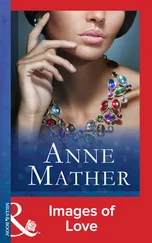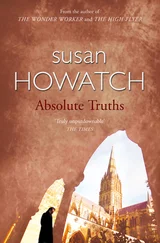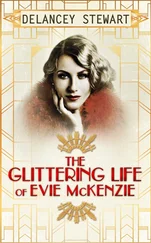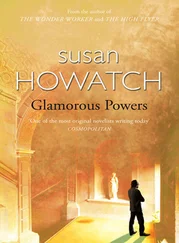‘Before I explain further, Charles, answer me this: what did you Cambridge theologians think of Jardine’s speech in the House of Lords ten days ago?’
That was an easy question to answer. During the debate on Mr A. P. Herbert’s Marriage Bill, which advocated extending the grounds for divorce, Dr Jardine had attacked the Archbishop in a speech which had tossed a fireball into the tinderbox of the Church of England.
‘We were all horrified, Your Grace.’
‘Of course he’s a brilliant speaker,’ said Lang, careful to go through the motions of exercising Christian charity by giving credit where credit was due. ‘Technically the speech was a masterpiece.’
‘But a deplorable masterpiece.’
Lang was satisfied. He must have been confident of my support, but it was over ten years since I had been his chaplain and like all prudent statesmen he no doubt felt it unwise to take loyalty too readily for granted. ‘Jardine’s attack was quite inexcusable,’ he said, sufficiently reassured to indulge in the luxury of indignation. ‘After all, I was in the most unenviable position. I couldn’t condone any relaxation of the divorce law; that would have been morally repugnant to me. On the other hand if I had openly opposed all change there would have been much damaging criticism of the Church. Caught between the Scylla of my moral inclinations and the Charybdis of my political duty,’ declared the Archbishop, unable to resist a grandiloquent flourish, ‘I had no choice but to adopt a position of neutrality.’
‘I do see the difficulty, Your Grace.’
‘Of course you do! So do all reasonable churchmen! Yet the Bishop of Starbridge has the insufferable insolence not only to accuse me of “sitting on the fence” – what a vulgar phrase! – but to advocate that multiple grounds for divorce are compatible with Christian teaching! No doubt one shouldn’t expect too much of someone who’s clearly very far from being a gentleman, but Jardine has behaved with gross disloyalty to me personally and with gross indifference to the welfare of the Church.’
The snobbery was unattractive. Lang might long since have acquired the manner of an English aristocrat, but he came from the Scottish middle classes and no doubt he himself had once been regarded as an ‘arriviste’. Perhaps he thought this gave him a license to be virulent on the subject of class but I thought the virulence underlined not Jardine’s social origins but his own.
Meanwhile he had discarded all grandiloquence in order to deliver himself of the bluntest of perorations. ‘In my opinion,’ he said, ‘Jardine’s no longer merely an embarrassment. He’s become a dangerous liability, and I’ve decided that the time has come when I must take action to guard against a disaster.’
I wondered if malice had combined with old age to produce irrationality. ‘I agree he’s controversial, Your Grace, but –’
‘Controversial! My dear Charles, what you and the general public have seen so far is just the tip of the iceberg – you should hear what goes on at our bishops’ meetings! Jardine’s views on marriage, divorce and – heaven help us – contraception have been notorious for some time in episcopal circles, and my greatest fear now is that if he continues to parade his questionable views on family life, some unscrupulous newshound from Fleet Street will eventually put Jardine’s own domestic situation under the microscope.’
‘You’re surely not implying –’
‘No, no.’ Lang’s voice was suddenly very smooth. ‘No, of course I’m not implying any fatal error, but Jardine’s domestic situation is unusual and could well be exploited by a press-baron with an axe to grind.’ He paused before adding, ‘I have enemies in Fleet Street, Charles. Since the Abdication there are powerful people who would like nothing better than to see me humiliated and the Church put to shame.’
The speech was florid but for the first time I felt he was not motivated solely by malice. His words reflected an undeniable political reality.
I heard myself say, ‘And where do I come in, Your Grace?’
‘I want you to go down to Starbridge,’ said the Archbishop without hesitation, ‘and make sure that Jardine hasn’t committed some potentially disastrous indiscretion – because if he has, I want all evidence of it destroyed.’
Lang was talking in calculated euphemisms; he was anxious not to blacken the Bishop’s reputation too deeply in the presence of a junior member of the Church’s hierarchy, but at the same time he wished to signal to me that where Jardine was concerned almost any nightmare was feasible. Jardine was not suspected of a ‘fatal error’; that meant adultery, a moral failure which would render a bishop, or indeed any clergyman, unfit for office. On the other hand Lang was raising the possibility that Jardine had committed a ‘potentially disastrous indiscretion’, a phrase which could mean anything from an unwise comment on the Virgin Birth to holding hands with a twenty-year-old blonde.
‘How much do you know about him?’ Lang added before I could speculate further.
‘Just the outlines of his career. I know nothing about his private life.’
‘He’s married to an exceedingly feather-brained little lady who must now, I suppose, be in her early fifties. Jardine himself is fifty-eight. Both of them look younger than their years.’ Lang made this good fortune sound like a breach of taste, and I sensed that his envy of Jardine’s youthfulness was mingling with his dislike.
‘Any children?’ I said, pouring him some more tea.
‘None living.’ He took a sip from his replenished cup before adding, Ten years ago soon after Jardine became Dean of Radbury, a young woman called Miss Lyle Christie was engaged by him to be Mrs Jardine’s companion. Poor feather-brained little Mrs Jardine couldn’t cope with her new responsibilities as the Dean’s wife, and all was the most inappropriate confusion.’
‘And did Miss Lyle Christie bring order out of chaos?’
‘Miss Christie. We’re not dealing here with a double-barrelled name – the misguided parents gave her the name Lyle instead of a decent Christian name such as Jane or Mary. Yes,’ said Lang, setting aside his teacup, ‘Miss Christie’s been keeping her employers’ household in admirable order ever since her arrival. However although this innocent little ménage à trois would normally be unremarkable, there are three aspects of the situation which – after ten years – can and do cause unfortunate comment. The first is that Miss Christie is a good-looking woman; the second is that she shows no inclination to marry, and the third is that Jardine himself has what might be charitably described as a healthy interest in the opposite sex.’ Lang, whose own good looks had ensured a steady stream of feminine admirers throughout his long bachelor’s life, gazed out of the window at this point in order to appear non-committal. As a Christian he was obliged to approve of a healthy sexual interest which led to marriage, but I knew he found a more pervasive carnal preoccupation with women distasteful.
‘In other words,’ I said, easing him around the awkward subject of Jardine’s attitude to the ladies, ‘you’re afraid that if the press start delving into Jardine’s private life they may make some embarrassing deductions about Miss Christie. But with all due respect, Your Grace, why should this worry you? Even the gutter press aren’t above the laws of libel, and they’d never print salacious allegations without written evidence to back them up.’
‘That’s exactly why I’m so worried.’ Lang shed all affectation at last to reveal the canny Scot who still lurked behind his English façade. ‘Jardine keeps a journal. Supposing some newshound bribes the servants and gets his hands on it?’
Читать дальше












